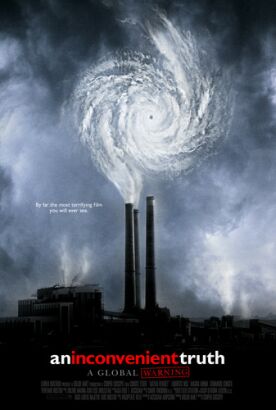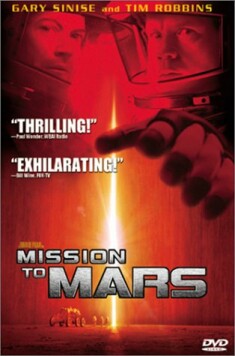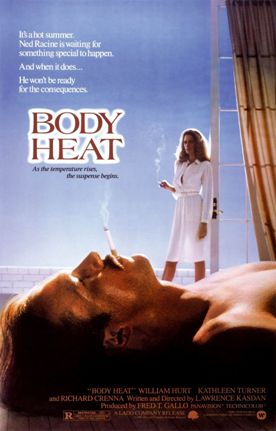Inconvenient Truth, An
It’s true that I am a natural skeptic about prophecies of doom from scientists and other experts. And if the media buy into these prophecies and make them the subject of endless scare stories — as they did about “the population explosion” some years ago, before it became clear that it would be population implosion we had to worry about — I am even more likely to set my face against them. But the real clincher, I don’t mind telling you, and the thing that is sure to persuade me there is nothing to worry about, is the presence of Al Gore as the pitchman for the apocalypse. Al has supposedly come out in a new and improved edition in his new film, directed by Davis Guggenheim, An Inconvenient Truth, and he naturally has the international media and even the beautiful people at Cannes cooing over him and it. Some are saying that he deserves another shot at the presidency in 2008 and citing the example of Richard Nixon, another two term vice president who narrowly lost an election to succeed to the Presidency and who then came back eight years later to win it. But, to me, Nixon never looked anywhere near as phony as Al Gore looks in An Inconvenient Truth.
Politics in a democracy is the art of making hard choices. And all the political choices are hard ones. If they weren’t, they wouldn’t rise to the level of the political. Nobody has to drum up a hard-won majority to condemn terrorism or to memorialize the victims of terrorism — at least not if it doesn’t cost anything. But Americans regard politics as curiously shameful and therefore like to be told that the choices are not hard — or ought not to be. Hence the acrimony and bitterness which have crept into our political life. Because we pretend that the choices are easy, we feel entitled, when out of power, not just to disagree with and to criticize those who are calling the shots but to call them morons, incompetents — or something more sinister — for making the wrong ones.
Nothing illustrates these propositions more clearly than the global warming “debate,” which is the ostensible subject of Messrs Gore and Guggenheim’s movie. Of course, there is no debate here, not even a residual slick on the surface. As with most documentaries these days the film is pure propaganda from end to end. Its real subject is Al Gore, the man who, as he puts it, “used to be the next president of the United States.” We see him strutting and preening before an adoring audience, like the college professor he was intended by nature to be, dazzling the impressionable not only with his charts and graphs, his high-tech wizardry and self-deprecating humor, but also with his personal authenticity. Once again, as when he was in politics, he offers up the affecting stories of his own suffering. Poor soul, his eyes are red as fire with weeping. Once again we are reminded of his sister’s death of cancer and his son’s near-fatal car accident. To these tragedies is now added what we are meant to see as his undeserved loss of the presidency to George W. Bush in 2000.
“That was a hard blow,” he says, “but you make the best of it.” He has made the best of it by taking his global warming show on the road — and the electronic map lights up with the cities all over the world where he has given what we are meant to see as the same presentation he is giving here, now, to us. Even funnier than the frequent shots of Al’s handsome but shadowed face turned broodingly in three-quarters profile with eyes downcast are the shots of him wheeling his lonely suitcase through weirdly empty airports. Imagine the pathos! He has to carry his own bag!
But most of the film finds him before the world’s most dazzling power-point presentation as he shows, seemingly irrefutably, that the world is heading for climatological disaster.
I am not a scientist and am unqualified to offer an opinion on the science which he uses to prove his point. As far as it goes, it sounds as persuasive to me as it was meant to sound. But it doesn’t go very far. For even if we accept that the science of man-made global warming is air-tight, there are only three questions about it that matter, politically speaking. They are these. How much of a difference in the worldwide rise of atmospheric and oceanic temperatures can we make by our political choices? What are the choices available to us? And how much will those choices cost us? The former vice president deals with none of these questions in any serious way. Instead, he adopts the currently fashionable technique — which is unfortunately not limited to cinematic entertainments — of simply ridiculing the choices of the morons in power.
Do you suppose it’s merely coincidental that millions of others join the speaker in believing that he should be sitting where the moron-in-chief sits?
As to how much of a difference we can make, he gives us none of the science on that point. Bjørn Lomborg’s calculation that the implementation of the Kyoto accords, the great shibboleth of the global-warming lobby, would at the cost of hundreds of billions of dollars a year only postpone the temperature rise over the next century by six years may be wrong, but Mr Gore never mentions that calculation, let alone demonstrates its error. Presumably, his performance has been so winning, the sympathy we owe him for his personal griefs and disappointments so great, that he doesn’t have to. Similarly, the only choices he mentions are but marginally political ones. We can make a difference, he says, by buying more energy efficient light bulbs or recycling. We could also raise the CAFE standards for car manufacturers. But how much of a difference these things would make is not mentioned. Nor are the choices that would make the biggest difference, namely a carbon tax and the construction of new nuclear power-generating plants.
Most importantly, the question of cost is treated with a scandalous lack of seriousness. Indeed, the very idea that there could be any cost, any trade-off between American or world prosperity and an environmentally clear conscience is described as a “false choice.” Handsome Al at his most engaging stands grinning before a comic graphic of a scale. On one side of the scale are piled up gold bars, on the other side — planet earth. Would we sell our whole planet for any number of bars of gold? Of course not! Where would we live? See how easy it all is? You’d have to be a moron not to understand it.
Talk about false choices! This is just another way of saying what he says at the beginning of the film: that global warming is a moral, not a political matter. That means that it’s an easy choice for decency to make — and that anyone with a different view of the matter must be, like the man who defeated Al Gore in 2000, either a moron or a villain. The weird thing is that global warming is in a way one of those non-controversial issues that don’t rise to the level of politics — except that the automatic consensus it gives rise to is not on behalf of any plan to do anything about it but is rather in favor of ignoring it. There was a reason, after all, for the 95-0 Senate vote against ratifying the Kyoto Accords during the Clinton years. Not many issues attain that kind of unity, but the unity against Kyoto tells us that endorsing a Kyoto-style trade-off would be in the American market tantamount to political suicide.
No wonder Gore steers clear of the hard questions! That’s why he calls it a moral rather than a political issue. He doesn’t actually want to do anything, he just wants another excuse for showing what a smart, caring, environmentally virtuous person Al Gore is. No, Al. Global warming may or may not be a moral issue, but it is undeniably political as well. What to spend on trying to delay the rise in world temperatures is not only a true but an inescapable choice — or rather, one which is escapable only by dishonestly ignoring it in favor of mere posturing.
Discover more from James Bowman
Subscribe to get the latest posts to your email.








